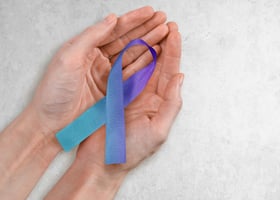Majority of Callers Say 988 Lifeline Saved Their Lives
Almost all the callers who reached out to the National Suicide Prevention Lifeline (now the 988 Suicide and Crisis Lifeline) say their calls helped them, with 88% saying that it stopped them from killing themselves, a study published in Suicide and Life-Threatening Behavior found.
“Suicide continues to be an alarming public health problem in the United States,” wrote Madelyn S. Gould, Ph.D., M.P.H., of Columbia University, and colleagues, noting that age-adjusted suicide rates increased by 30% from 2002 to 2022. “The establishment of the 988 Suicide and Crisis Lifeline is a leading response to this national crisis.”
Gould and colleagues interviewed 437 adults (59% female, 72% between the ages of 18 and 34) who called the Lifeline between April 15, 2020, and August 15, 2021 (the network’s dialing code became 988 in 2022). The callers were identified as suicidal based on their Lifeline counselors’ clinical risk assessments. Callers were interviewed about two weeks after their initial calls to the Lifeline. Interviewers assessed the callers’ demographics, clinical characteristics (including history of suicidal ideation and suicide risk at the time of the call), and perceptions of counselor practices and their calls’ outcomes.
Over half of the callers reported being at least somewhat likely to act on their suicidal thoughts at the time of their call. However, nearly 72% of callers reported that calling the Lifeline helped them a lot, and a further 26% said it helped them a little. Asian callers were significantly less likely than other races to say their call helped them a lot (just 42%), which the researchers said might have been due to increased discrimination faced by Asian Americans during the COVID pandemic, when the interviews took place.
Additionally:
- About 59% of callers said they’d had no thoughts of killing themselves since the call.
- Callers nearly universally said their counselors engaged in Lifeline best practices (fostering engagement/connection, collaborative problem-solving, and safety/assessment management).
- Callers’ perceptions of their counselors’ behaviors were significantly and clinically meaningfully associated with positive call outcomes.
“While it might be expected that callers would rate counselor behaviors favorably on calls they found helpful and effective, it is notable that favorable ratings of the assessed domains of counselor behavior were also associated with lower rates of recurrence of suicidal thoughts,” the researchers wrote. “[O]ur study provides empirical evidence for the effectiveness of Lifeline’s telephone crisis services from the perspective of callers themselves.”
For related information, see the Psychiatric News article “988 Finally Connects Callers to Local Resources.”
(Image: Getty Images/iStock/Dobrila Vignjevic)
Don't miss out! To learn about newly posted articles in Psychiatric News, please sign up here.




